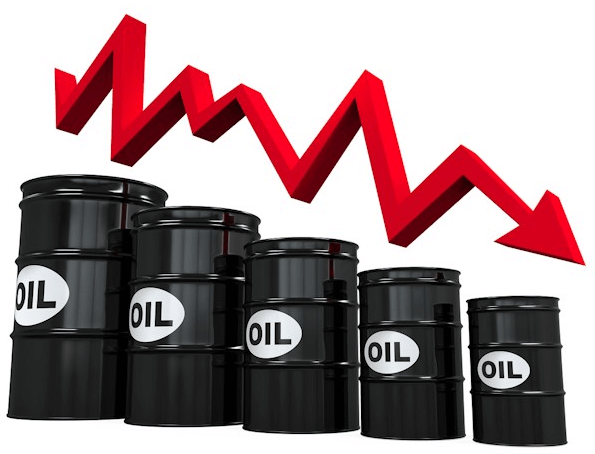Cryptocurrencies in times of crisis

The current Covid-19 pandemic will go down in history because the worst health crisis of the 21st century. Additionally, to the health aspects, however, there have also been clear effects on the capital markets. Most markets collapsed within a couple of days. Especially on the stock markets, investors suffered heavy losses. the precious metals gold and silver were also hit hard. Worst of all, however, were cryptocurrencies affected by the sale. Both Bitcoin and Altcoins lost a large part of their market capitalization.
In this article we’ll deal with the question of whether the cheap crypto prices represent a chance for investors or whether they should first seek distance from the market. Additionally, to a current assessment of matters, we also explain some ways to act successfully.
Corona: a short-term shock or financial crisis

The markets are in a downward trend since March 9, 2020. Within a couple of days, the most important indices have given up a large part of their value. After the first day caused a hangover among investors, the following days brought further difficulties.
While the first price drop by the Bitcoin price, the aftershock of March 12, 2020 led to rapidly falling prices. The market leader started trading at a gap price of $ 7,000. At the end of the day, the speed was only about $ 6,000. each day later, the price was temporarily valued at just $ 3,600 – a price that was last seen in December 2018.
However, the altcoins, especially Ethereum, were hit even worse. While the cryptocurrency traded at $ 196 on March 12, 2020, the worth of the currency at the top of the trading day was only around $ 137. At a price of 106 US dollars, Ether narrowly missed the psychologically important 100 dollar mark at some point later.
With reference to this crisis, more and more investors are asking themselves what impact it’ll have on the economy in the future. According to the reserach, there’s a risk of a decline of around 1.0 percent in the second quarter, while growth in the third quarter could increase again and amount to 0.9 percent.
The oil price exacerbates the crisis
This would give us an overall V-shape of the recession. according to this, the Institute for the world Economy expects economic growth of 2.1 percent in 2021. Nevertheless, the coronavirus is currently ensuring that the majority of the economy is close up. Manufacturing companies particularly should rely on temporary work or stop operations altogether. The virus can therefore be described more as a catalyst that’s driving the economy into troubled waters.

For the present sell-off, the price war between Russia and Saudi Arabia on the oil price should weigh more heavily. This has always been an indicator of a well-functioning economy. The announcement that Saudi Arabia is increasing its production volume despite falling demand caused a global shock on March 9, 2020. As a result, most asset classes lost value. In theory, a higher amount of oil seems to be positive for consumers, since fuel prices at petrol stations are at their lowest levels.
Such a price war can, however, also have an enduring effect on international stability, as numerous companies have specialized in the extraction of shale oil (fracking). The margins are low here and therefore the companies already have a high level of debt. The current low oil price means companies aren’t any longer competitive. Bankruptcies are the result. Such a wave of bankruptcies could ultimately shake financial institutions as well. in this context, many investors see an increasing risk of a worldwide economic crisis.
Financial support for companies and households
The federal government has already announced financial support for personal households and corporations as immediate measures. In the first step, the regulations for short-time work allowance were relaxed significantly so companies can use it more quickly if there’s no demand. Additionally, a rescue package for companies with a volume of 500 billion euros is planned.
The European financial institution has already reacted to the crisis. In this context, ECB President Christine Lagarde announced that the ECB is buying bonds worth 750 billion euros so the market is going to be supplied with liquidity.
How is the corona crisis affecting the financial markets?
But how is that the current crisis actually affecting the capital markets? The virus puts the western world into a sort of paralysis. Nevertheless, countries such as Singapore, South Korea or China show that life can continue even with a new kind of virus.
Above all, the fresh liquidity in the markets offers opportunities. A credit squeeze just like the one that occurred in the wake of the financial crisis in 2009 isn’t expected. The financial institutions would have to keep the capital in the main refinancing business with the central banks. A penalty fee must be paid on this deposit because of the negative key interest rates. Therefore, lending should be the better option to deal with the money.
Cryptocurrencies as protection against inflation
As history shows, printing new money doesn’t always add up. A glance at Argentina or Venezuela also illustrates the consequences of hyperinflation. Generally, currencies are only worth as much because the trust of the market participants who use them. The gold standard, which was supposed to secure the US dollar with a real value in the past, has long been a thing of the past. This implies that the leading currency also depends on the confidence of the market.
Trade cryptocurrencies successfully in times of crisis
The question of whether the present prices offer a buying opportunity for long-term investors is difficult to answer. One, however, check out the development of Altcoins like IOTA, Tezos, XRP or ether and Bitcoin shows that plenty of potential there is. Nevertheless, even during the crisis, investors should be sure whether there’s a chance to buy. Therefore, a long-term analysis of the desired assets is suggested. Additionally, the individual strategy also plays a crucial role when investing.
The following factors must therefore always be observed when trading:
- Determine your personal investment horizon
- Find your own strategy
- Find the proper systems
- Make rational decisions based on trading strategy
- Invest and check your investment regularly
Conclusion on cryptocurrencies in times of crisis
Hardly any other asset class has as many loyal followers as cryptocurrencies. They were chosen because the “new gold” long before the Corona crisis. But the virus also tore down digital currencies. In mid-February, Bitcoin was still around $ 10,000, while a month later it had been only around half. Bitcoin is now trading at around $ 8,000 again. This is a change in the Bitcoin algorithm that reduces the availability. So, will there still be a triumphant advance in times of crisis? The crypto and bitcoin news are rolling in lately.
The future of cryptocurrencies depends on many factors. The subject of regulation will play an increasing role in the future. On the opposite hand, the market will grow more and more through cryptocurrencies from private companies, central banks or states. How this may ultimately affect the value development remains to be seen.